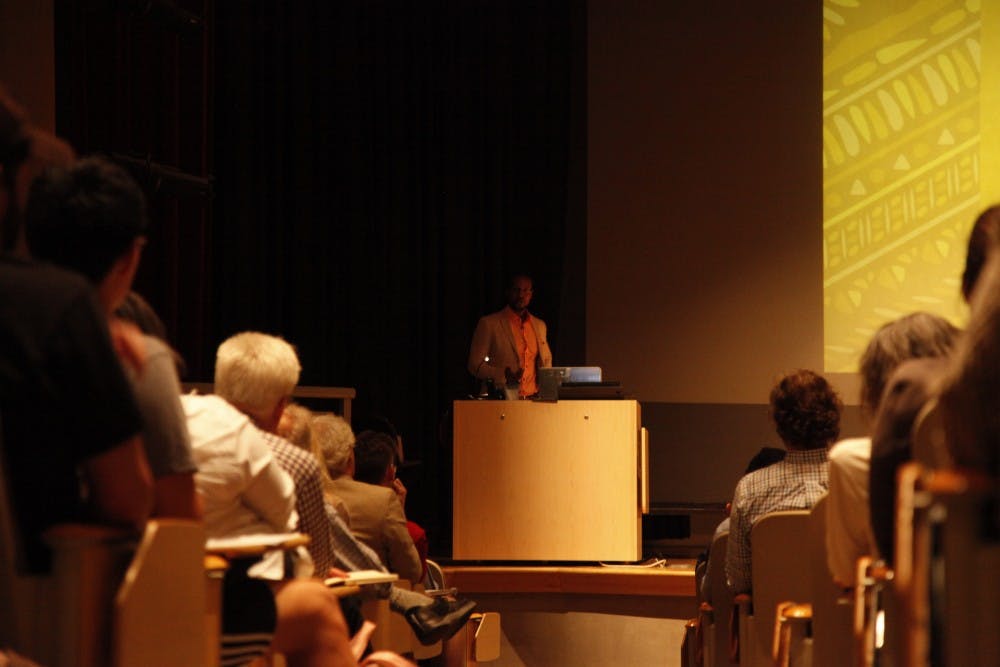CORRECTION: An earlier version of this article incorrectly identified the lecture as a Stone Center lecture. The lecture was hosted by the University Office for Diversity and Inclusion. The story has been updated with the correction host of the lecture. They Daily Tar Heel apologizes for this error.
In honor of Black History month, UNC’s Office for Diversity and Inclusion hosted award-winning historian and New York Times best-selling author Ibram X. Kendi to deliver a lecture on racist ideas in America on Thursday.
Kendi, a professor of history and international relations at American University, writes and delivers lectures on race issues. Kendi is a 2016 National Book Award winner – his book "Stamped from the Beginning" sheds light on the racist issues that have circulated throughout society.
In his book, Kendi wrote that racism is not only still present, but is more sophisticated and insidious than ever before. Kendi also contrasts the belief that racism was born out of ignorance or hatred, saying instead they were constructed by the most brilliant minds of each era.
In his lecture at the Sonja Haynes Stone Center, Kendi discussed the difficulty he found in his research of defining a racist idea, due to the inherent denial that people have when it comes to racism, which he labels as the heartbeat of racism.
“I ended up defining a racist idea very simply as any idea that suggests a racial group is superior or inferior to another racial group in any way," Kendi said.
Kendi discussed how people often say they are not racist, and said being a “non-racist” was a denial of racism.
“There’s this contrast between racist and not racist and I, as somebody who studies ideas and history, I have been looking for quite some time to understand the history of ‘not racist,'" Kendi said. "When people say to me they are not racist I say, 'Okay, what does it mean to not be racist?'"
For Kendi, the answer to combatting comparisons of different groups is to approach the issue as an anti-racist and equate the differences of racial groups, rather than labeling them for better or worse.




